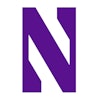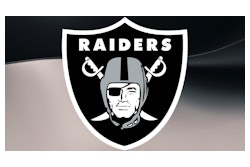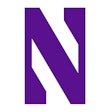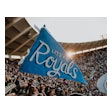Copyright 2014 Union Leader Corp.
All Rights Reserved
The Union Leader (Manchester, NH)
$25 million: But Gov. Hassan's spokesman said the governor questioned whether it was "the best use of limited resources."
DURHAM -- University of New Hampshire President Mark Huddleston said Tuesday the university plans to pay the projected $25 million cost of a major renovation of its outdoor athletic complex through borrowing and private fund-raising, and he stressed that it will have no effect on student tuition.
Huddleston told the New Hampshire Union Leader in an interview that his prime goal is the same as that of Gov. Maggie Hassan and several top state lawmakers who questioned the stadium financing plan on Monday. That goal is, Huddleston said, to keep tuition as low as possible.
"State dollars are not implicated here at all," he said. "Every state dollar that we get goes to exactly the purpose that we talk to the state about, and that is to buy down the cost of tuition for New Hampshire resident students. It goes into scholarship aid and other direct costs of educating New Hampshire kids."
Huddleston said the stadium financing plan is "exactly like the plan we used" to pay for the Whittemore Center in the early- and mid-1990s.
Although there were criticisms of that plan, too, Huddleston said that it eventually proved to be successful.
For the stadium, "We plan to raise some private money ($5 million), which is actually a larger portion of private money than we were able to raise for the Whit," Huddleston explained.
"And for the balance of the cost of the project," he said, "we will seek to put together a loan package. At least part of the repayment of that loan package will be covered by incremental revenues that we will realize through expanding the stadium."
He said the plan calls for borrowing against $20 million in cash reserves. The plan is not, he said, to simply withdraw, $20 million from a savings account to fund 80 percent of the project. UNH says it will repay the loan over the next 20 years "at the prevailing treasury rate."
Huddleston and other university officials have said that expanding and renovating Cowell Stadium, which would be called West Stadium, will draw larger crowds, resulting in more ticket and concession sales, and may even draw more students to the university. It is expected to open in late 2015.
"We're not sitting on stack of cash that we can simply use to do this project rather than another project," said Huddleston.
"Instead, we very thoughtfully looked around our campus and asked, what kinds of facilities do we need to upgrade in order to remain competitive in a really difficult market? And this is one of them," he said.
"I would stress very much that this is just like the Whitt, and there were a lot of people who were critical of the Whitt project back in the early 1990s," he said. "But it now has become a beloved fixture not only on our campus but arguably for the whole state. And I think the same thing will happen when the stadium gets renovated."
UNH says the Whittemore Center project cost a total of $27.6 million. Of that, $17 million was state Health Education Funding Authority (HEFA) bonding, $5.6 million was internal borrowing, which has been paid back, and $5 million was private fund-raising.
"The project we're talking about now is less money by far, due to inflation, and we've promised to raise a lot more private money (as a percent of the total) than we did for the Whitt," Huddleston said, "so people ought to be standing up and cheering and celebrating.
"Not only are we looking at a great new facility but we're doing it in a more responsible fashion. We're not being Notre Dame and putting up a $400 million stadium. It's a modest, New Hampshire-scale expansion."
According to UNH, since 1991, $687 million has been spent on facilities in Durham: half on academic buildings, 30 percent on student housing and dining, 25 percent on power, water, roads and grounds, and 6 percent on athletic and recreational facilities.
The university also says it has long used internal borrowing to finance projects. It said that at the end of fiscal 2013 the university system had $282 million in unrestricted net assets and $442 million in outstanding debt. It said the reserve-to-debt ratio of 64 percent has earned it a bond rating of Aa3 from Moody's.
Still, Democrats Hassan and House Speaker Terie Norelli, as well as Republican Senate President Chuck Morse and House Republican Leader Gene Chandler on Monday questioned why the university was pledging $20 million for a football stadium loan.
Hassan's spokesman said the governor questioned whether it was "the best use of limited resources."
Morse called it a "mistake" and suggested university system officials watch "the bigger picture, which is to make sure we're keeping tuition down."
Norelli said that after elected officials "worked very hard" to find more money for the university system last year so that it could freeze in-state tuition,
Chandler said he was "appalled" and that there are other more important needs at the university.
Huddleston responded Tuesday, "I actually share the view expressed by many about the really high cost of tuition and the critical importance of making our institution as affordable and as accessible as possible.
"I think I've been one of the leading spokesmen in the state on that issue and I will continue to talk about that.
"But," he explained, "if we took the $20 million that we're trying to borrow to do the stadium project and we borrowed $20 million to lower tuition, that would be a one-time expenditure that would not go very far or last very long.
"We would be on the hook for having borrowed $20 million for a one-time reduction in tuition and it wouldn't be sustainable."
Huddleston said he "always tries to think of what we can do on a sustainable basis that makes the University of New Hampshire as attractive, affordable and accessible as possible.
"The dollars sitting in the reserves come from a variety of places, including interest earned on short-term cash investments over the years and money that's accumulated as a result of us being frugal.
"It is, in effect, a rainy day fund," he explained. "Just as the state tries to maintain a rainy day fund, the university system, being good stewards of our own cash, maintains a rainy day fund."
The state provided $153 million from the general fund to the university system as a whole in the current 2014-2015 two-year budget cycle and an additional $8 million for projects in the capital budget. The UNH Durham campus received $51.8 million from the general fund in fiscal 2014, and in fiscal 2015 will receive $57.4 million. UNH is receiving a total of $4.5 million in the two-year capital budget.
Huddleston said, however, the state contribution, compared to the overall university system budget, "is pretty tiny. Most of what we spend is money we raise ourselves through tuition and private giving, and that's where all of these dollars that constitute a cash reserve comes from."
He said a new stadium will not only generate higher attendance at games, but more pride in the university.
"I think the kind of excitement that I felt around here this fall when (the Wildcats football team) was making that incredible run to the semi-finals was palpable throughout the entire state," Huddleston said.
"That was kind of a capsule version of what great facilities can do for the university. They generate buzz. They put us on the map. They generate interest from prospective students.
"And that's where the dollars come from," he said. "They come from kids who want to come here, and they want to come here because we have great science facilities, phenomenally committed faculty and an amazing new business school that was largely the result of private giving.
"And they want to come here because we've got great sports teams and sports facilities," Huddleston said.
"Although these are modest, New Hampshire-scale facilities, they still need to be attractive and the 1930s-era stadium we've got just isn't."
Huddleston said that since the announcement was made last Friday, he has heard from people "on both sides of the issue. No one seems to be indifferent.
"I've heard from a tremendous number of alumni and friends, and people are already writing checks," he said.
Huddleston said he and his staff, as well as system Chancellor Todd Leach "have meetings set up for the rest of the week, and the good news is that all the questions can be answered."
Terms and Conditions Privacy Policy































